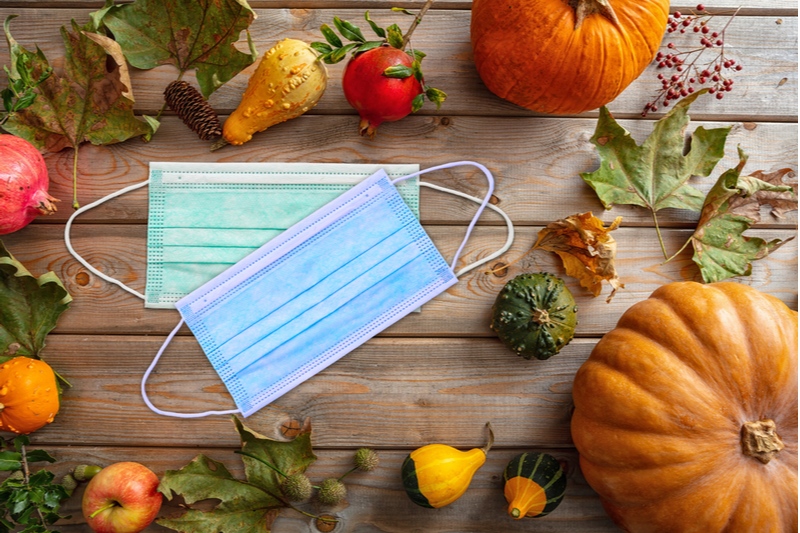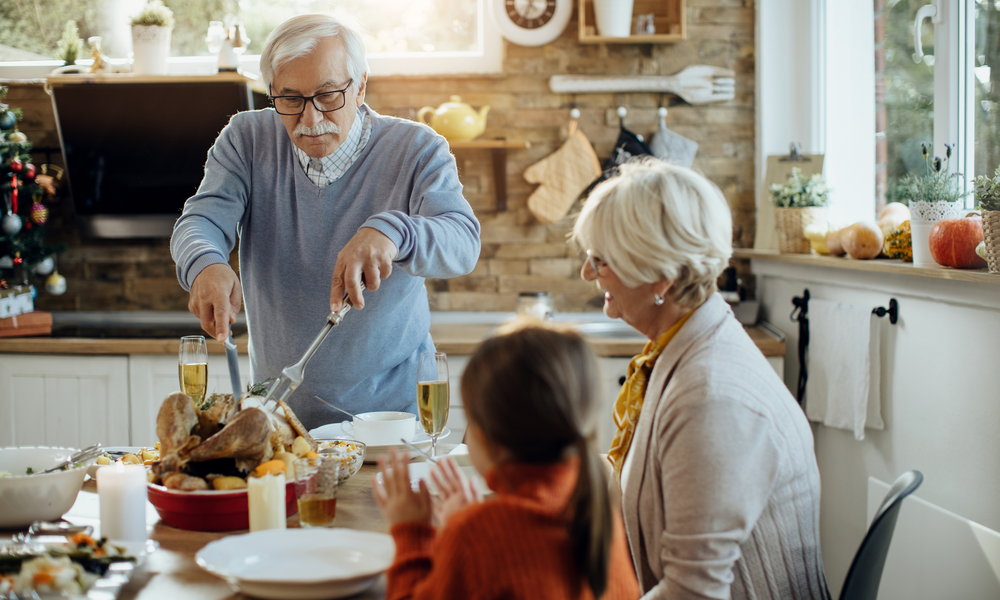Holiday visits with family are not recommended this year. That’s the upshot of the recommendations from the CDC on celebrating Thanksgiving and the holidays during the COVID-19 pandemic. But the holiday season is precisely the time that children get to know their relatives. Can holiday visits be made safer? Are children likely to spread coronavirus to beloved grandparents and other relatives during holiday visits? Some experts believe that children are super spreaders of the virus, so it’s definitely best to stay home with those already living in your home. If you decide to risk a holiday visit, keep gatherings as small as possible, make sure children stay socially distant from others, and have them wear masks and practice good hygiene.
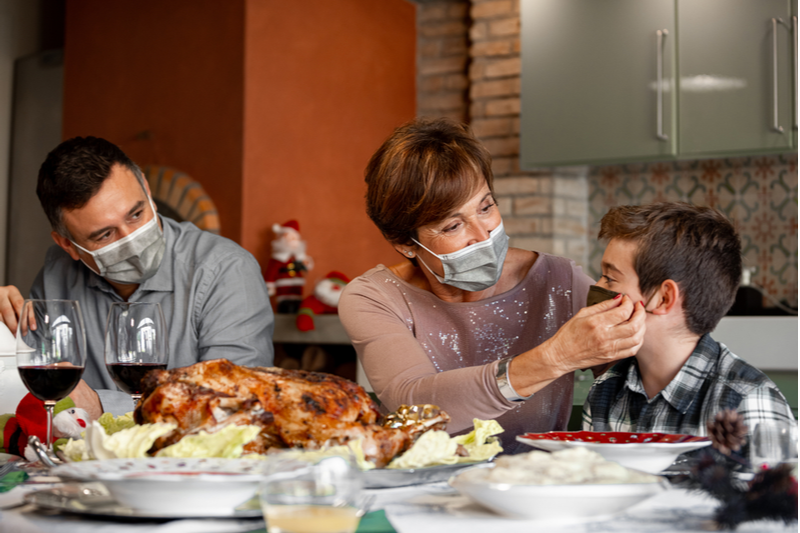
It’s important for children to spend time with family members. Having a good relationship with grandparents, in fact, has been proven to make children more resilient. Commenting on an Oxford University study on the value of grandparents, Dr Eirini Flouri, from the Institute of Education, said: “We found that close relationships between grandparents and grandchildren buffered the effects of adverse life events, such as parental separation, because it calmed the children down. This suggests future investigations should pay more attention to the role of grandparents in developing resilience in young people.”
But that doesn’t mean that children have to get up front and personal with their grandparents. According to the young participants in the Oxford study, getting to know grandparents from a distance with the help of technology (think Zoom, for instance) worked just fine. That being the case, you may want to rethink putting everyone, children and grandparents alike, in the same room together during Thanksgiving, Christmas, or Hanukkah celebrations. Why take the risk of spreading the virus during holiday visits, to vulnerable grandparents and others?
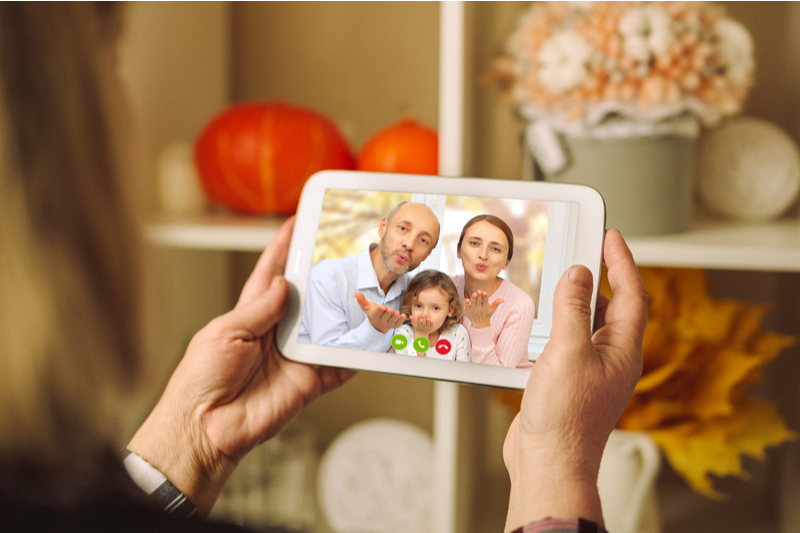
Children May Be Super-Spreaders
Dr. Abisola Olulade, a board certified family medicine physician, says that in some cases, children have been shown to be super-spreaders of COVID-19. “The CDC reported on this in October 2020. A 13-year-old girl spread the virus to 11 family members. Her only symptom was mild nasal congestion. The CDC reported that she was the index patient that spread the virus to several people in her family,” said Olulade, also known as “Dr. Abi.”
For this reason, says Dr. Abi, “It’s not recommended that grandparents attend in-person holiday gatherings. The CDC recommends against in-person gatherings for people 65 and older, as 8 out of 20 COVID-19 deaths in the U.S. have been in people older than 65. If they also have underlying medical conditions that may put them at risk of severe illness from COVID then you have to realize that this creates even more of a danger. Examples of these conditions include cancer, chronic kidney disease, COPD, sickle cell disease, diabetes, and heart conditions such as heart failure, coronary artery disease, or cardiomyopathies. Any relatives who are immunocompromised, pregnant, or obese, are also in this high risk category.”
That said, says family practice physician Peter Bailey, MD, when it comes to holiday visits, a lot depends on circumstances. “If your children have been doing remote learning this school year through virtual classes and have otherwise been at home with you, you are at lesser risk of exposing grandma and grandpa to COVID. However, if your children have been attending classes in person at school along with other children, even in a socially distanced and COVID-safe environment, the risk of exposure is greatly increased. There is no clear right or wrong answer on whether grandchildren can visit their grandparents this season—it is circumstantial and you must look at the totality of factors.”
Grandparents Are High Risk
Even so, says Bailey, grandparents, being elderly, are generally considered the demographic with the highest risk for COVID-19. “It is critical that all precautions be taken to prevent them from being exposed to COVID. So if you decide that you feel safe, based on the circumstances, to have your children visit their grandma and grandpa, I would suggest a few things. First, quarantine the kids as long as possible before going to see their grandparents, ideally for two weeks. Have the children shower or bathe thoroughly the day that you leave for the visit, and make sure their clothes and toys are washed and dried thoroughly.
“Kids are not super-spreaders based on their biology, but through their behavior. So ensure your kids are careful to wash their hands, don’t touch public items like door handles or bike racks, and generally make them aware of their behavior as best you can,” says Bailey.
Not everyone, of course, agrees that children are super-spreaders. Some, in fact, believe that children are less likely than others to spread coronavirus. COVID-19 is spread through droplets dispersed through the air as we exhale. Children, according to Elizabeth Barnett, chief of pediatric infectious diseases at Boston Medical Center and professor of pediatrics at Boston University School of Medicine, breathe out with less vigor than adults. They are also closer to the ground, which means that any droplets exhaled, may fall safely out of reach of adult breathing space.
Holiday Visits Increase the Risk of Illness
Researchers at the Children’s National Hospital in Washington, DC, meanwhile, found that infected children can spread the SARS-CoV-2 virus for weeks, even when they show no signs or symptoms of illness. Children may feel just fine as they unwittingly spread the virus to their loved ones. No parent, of course, wants to discover that their children’s grandparents or other relatives contracted COVID-19 within weeks of a visit from the kids.
Leann Poston MD, MBA, M.Ed, whose varied and distinguished career includes the practice of pediatric medicine, says that the danger comes when groups of people who live in different households get together. “Any grouping of people who live in different households who therefore have distinct sets of exposure risks to COVID, increases the risk of spreading COVID to grandparents. The smallest group possible, in a well-ventilated area, using social distancing and wearing masks, decreases the risk of spread. In all cases,” says Poston, “families will have to weigh the risk of spreading COVID to high-risk family members with the risk of not seeing family members for the holidays. Hopefully, with vaccines in sight, the timeline does not stretch on indefinitely.”
Dr. Abi reiterates that children and adults alike can be pre-symptomatic or asymptomatic and may unknowingly spread the virus during holiday visits. That’s why the safest way to celebrate with those outside your household, is to celebrate virtually. “If you do meet up with grandparents, try to mitigate the risk by celebrating out of doors, distanced and with masks on at all times. Also, aside from a two-week quarantine beforehand, think about how you are traveling to visit them.
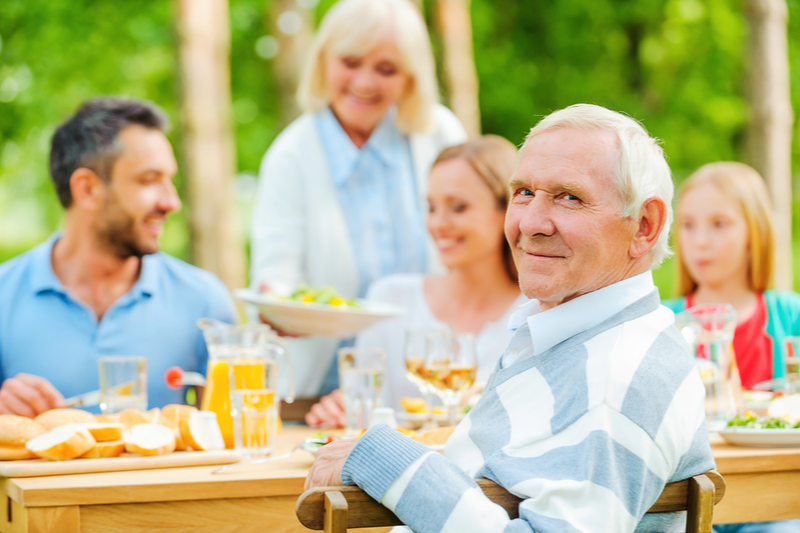
Holiday Visits Necessitate Travel
“Are you going to be waiting in a crowded train station or bus terminal?” asks Dr. Abi. “Crowding increases the chances of catching COVID. Do you live somewhere with high COVID case counts? The higher the level of community transmission in the area where the gathering is being held, the higher the risk of COVID spread during the gathering.
“Also remember that testing is not perfect–testing is just a data point in time. You may test negative today and then test positive tomorrow. If you do choose to forgo seeing grandparents in person you can still stay in touch virtually and by doing so you can possibly give them a chance of having many more holiday seasons.
“Even when you take the best preventative measures, says Dr. Abi, there isn’t a way to make bring the infection risk to zero. There is still a chance and it’s something to think about.”
